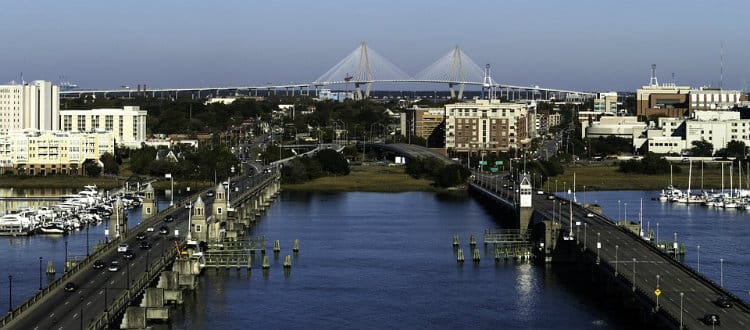When South Carolina maritime and offshore workers get injured on the job, they often have several questions:
We can help you begin planning for your injury recovery in a free consultation.
South Carolina’s ports are a major economic force in the region. The South Carolina Port Authority is responsible for 1 in 11 jobs in the state, and these jobs pay about 40 percent higher than South Carolina’s average wage. In total, over 187 thousand residents make a living through a port-affiliated job.
While these jobs provide economic security for individuals and help drive the economic activity of the state, maritime and offshore work can be dangerous. Maritime and offshore injuries are fairly common, and may require long periods of missed work along with painful and expensive recoveries. For South Carolina offshore workers who find themselves in this position, it’s important to be aware of the right to financial compensation.
If you’ve been injured as an offshore or maritime worker, you may be eligible for financial compensation under the Jones Act or other maritime laws. An experienced maritime lawyer can help you better understand your options in a free consultation.
If you'd like to learn more, visit: https://legalherald.com/offshore-injury/states/

In the event of a work-related injury, South Carolina maritime workers may be covered by one of two federal laws:
South Carolina has a couple of ports which generate the largest economic impacts:
The Port of Charleston is a large seaport which spans three different municipalities, including Charleston, North Charleston, and Mount Pleasant. The port’s facilities handle containers, motor vehicles and other rolling stock, non-containerized goods and project cargo, cruise ship operations. This port contains five public terminals, in addition to privately owned and operated facilities which handle commodities such as petroleum, coal, and steel.
Just 60 miles north of Charleston, the Port of Georgetown specializes in breakbulk and bulk cargo transportation. The top commodities passing through this port include steel, cement, aggregates, and forest products. Facilities in this port are owned and operated by a combination of the South Carolina State Ports Authority (SCSPA), the US government, and private businesses which include seafood and paper companies.
After suffering a serious maritime or offshore injury, it can be difficult to recover the full financial compensation you’re entitled to on your own. These injury claims involve the complex statutes of maritime law and it’s common to face resistance from employers and insurance companies.
In order to make sure you recover the financial compensation you need and deserve after an injury, it’s usually wise to ask for guidance from an experienced maritime lawyer. The right lawyer can help you understand your rights and represent you through all aspects of the legal process, including negotiations with insurance companies. You can learn more about your options in a free consultation, and will only be asked for payment if and when you receive financial compensation.
Further Reading:


 info@legalherald.com
info@legalherald.com